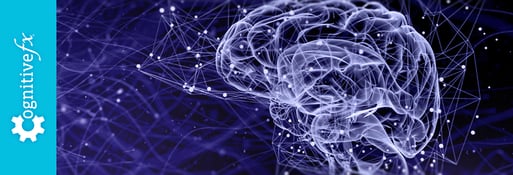Water. Something we don’t really think about until we are hit with a gigantic wave of what feels like an unquenchable thirst. We then spend the next few minutes chugging water like it is the last thing we will ever do. We are all really good at coming up with excuses for why we haven’t had enough water.
We’ve all said things like:
- I forgot (Out of sight, out of mind).
- I’m not thirsty.
- I don’t like how it tastes.
- It's difficult to drink the daily recommended amount in a day.
Did you know that the feeling of thirst is actually your body telling you you’re already dehydrated? So if you’re relying on thirst to remind you to drink water, you’re only avoiding severe dehydration, not fulfilling your daily water intake. Headaches can also be a symptom from not drinking enough water, which can contribute to post-concussion symptoms.
When was the last time you drank enough water?
Did you know that it is recommended to drink 8 eight-ounce glasses of water on a daily basis? Which equals to about 2 liters, or half a gallon. Think about it: How much water have you had today? What about yesterday? Some days I can’t even recall the last time I drank water. Which is not good, friends. Not good.
According to the National Academies of Sciences, Engineering, and Medicine, there is no one answer to how much water we should be consuming, but a great rule of thumb is to drink half your body weight in ounces of water. This will support your body in being hydrated, which helps all of your body systems function. The CDC also explains that you may need to drink more water if you are in a warm climate, being physically active, or if you are sick or running a fever.
So what can we do to remember to drink water?
Even though water is CRUCIAL to literal survival, the number one excuse we tend to give for not drinking water is that we plain forgot.
Here are some tips to help you remember:
- Get a refillable water bottle to carry around with you. If you’re carrying it around, you’ll be reminded that it’s there, and you’ll drink more often. Much of the time, if it’s out of sight, it’s out of mind.
- Choose water instead of other beverages when you eat out. Not only is it better for you, it’s also better for your wallet! Plus it helps you keep the habit of drinking water throughout your day.
- Don’t like the taste? Many people say they don’t like the flavor of water—or the lack of flavor. Try adding lemon juice, lime juice, or sliced fruits. This can trick your mind into thinking you’re drinking something else while still getting enough water.
- Get a freezer-safe water bottle that you can fill part of the way with water then freeze so that you have ice-cold water all day long.
- Drink water before every meal. Oftentimes we confuse thirst with hunger, so you could potentially just be thirsty rather than hungry. So you’re helping your body and curbing cravings all at once! Two birds, one stone!
- Every morning drink 16 oz of water before you eat breakfast. Drinking water on an empty stomach has a variety of health benefits, and this will help you get a running start on your total ounces for the day.
For everyone, particularly those who have had a brain injury, drinking enough water is key to supporting your body. Since an adult human body is made up of 55% (female) to 60% (male) water, with some organs and tissues being up to 90% water, we need to stay hydrated for our bodies to properly function and stay healthy. So do yourself a favor and drink up!





